Watching the videos from the Chaos Communication Club (CCC) is both an entertaining and educational activity. Our 2020 focus on sustainability has inspired me to share my favourite moments that seem most relevant to the RIPE Community and RIPE Labs audiences.
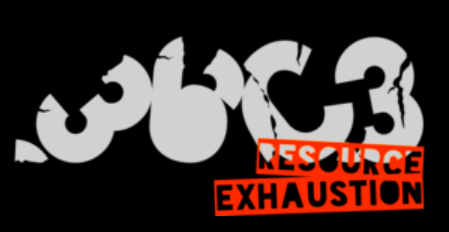
This is the largest "hacker" event held in Europe. All elements of it are to my liking: it's non-commercial, not-for-profit, decentralised, organised by volunteers, and it focuses on the impact of technology on society in terms of privacy, security, politics, art, science… and, since just recently, there's also a big focus on “Resilience and Sustainability”.
In the past, I have visited seven CCC Congresses. In 2019, I decided to skip it, due to - as they aptly named the event - Resource Exhaustion. I was watching the presentations remotely, and these are my highlights, by the following categories: Green Tech, RIPE Community Related, Personal Favourites.
Enormous Scope
The five-day event hosts 18,000 visitors/participants, and lists hundreds of presentations on the official programme. That's not to mention the volumes and volumes of content on display in the hallways, the “villages”, smaller “stages”, and hackerspace “assemblies”. There are more than a hundred video’s uploaded to the media.ccc.de, which are also available on other platforms (e.g. YouTube CCC Channel).
From the Infrastructure review report, here are some numbers:
- ~11.000 peak WiFi connections
- 20% over IPv6!
- 255 hours of recorded talks at 10 stages
- 15K minutes of content translated by volunteers
- 419 assembles (self-organised communities)
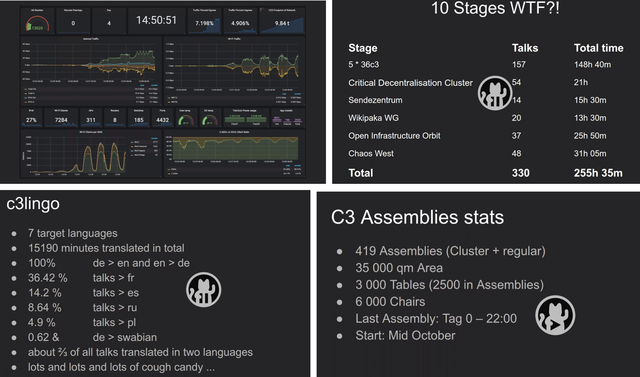
Remote Participation
Working together, meeting friends in person, exchanging knowledge, sharing experiences, learning together, doing outreach and gathering feedback... all of this happens at conferences, workshops, hackathons, roundtable meetings... and all of them require travel. In this historical moment, we cannot continue to ignore the impact that our insistence on cooperation-by-international-travel is having on the environment. That's why many people are trying to reduce the air travel, both for work and for tourism. There are also reasons that spring from economic and philosophical concerns, as well as considerations about fairness.
This is why more and more of the community is working on ways to improve remote participation:
- “chaos everywhere” or “Congress everywhere”
- MENOG remote hubs
- IETF remote participation
- Possible steps for SIGPLAN community
While this is my personal choice - not to travel, but watch the video's during/after the event instead - I am looking forward to the time when other events become completely remote:
- UNEP, Global Digital Capacity Building in March 2020
- ...maybe using "remotely.green" as a tool?
- and finally, how to organise your own "NEARLY CARBON-NEUTRAL CONFERENCE" : a practical guide
Top-3 Green Tech Talks
Considering increased global awareness of the climate crisis, I would like to bring the attention of the RIPE community to the Internet industry's environmental impact (in terms of energy use at datacenters, e-waste, etc.). There's also the important question of how to build and use networking technologies in sustainable ways. There were many talks that were both technically relevant, informative and quite applicable to the RIPE audience. Here are my top three:
1. Reducing Carbon in the Digital Realm by Chris Adams
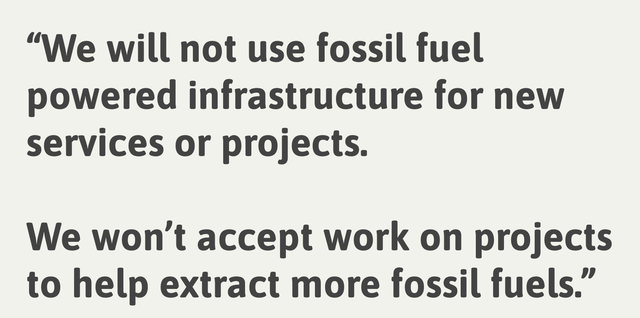
In this talk, Chris is focusing on hosting providers and web-content-platforms, giving advice on how to reduce their carbon footprint. For me, the next step is how to get the transit providers to also "go green": green packets :)
2. Server Infrastructure for Global Rebellion by Julian Oliver
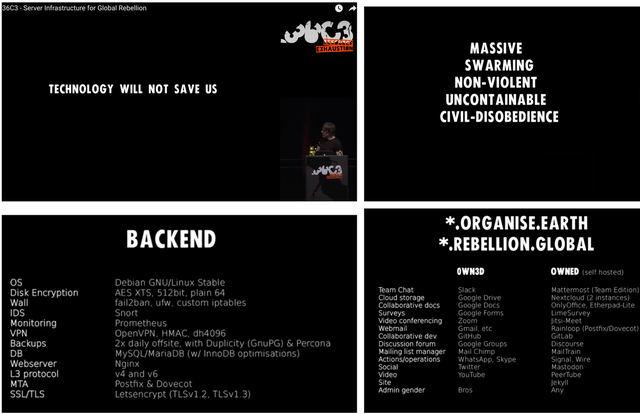
In this talk, Julian discusses his work as sysadmin, systems and security architect for the climate and environmental defence movement Extinction Rebellion. Responsible for 30 server deployments in 11 months, including a community hub spanning dozens of national teams (some of which operate in extremely hostile conditions), he shows why community-owned free and open source infrastructure is mission-critical for the growth, success and safety of global civil disobedience movements.
3. The Dire Reality of the Climate Crisis by Hanno Böck

For beginners and sceptics: this talk is both alarming, although it also makes clear that the worst case scenarios currently being predicted might not come to pass after all. Still, watch at your own discretion! You might get very sad, or you might get energised (pun intended!) to take action!
Top-3 RIPE Community Related Talks
1. The Technical is Political , by Oscar
Oscar's talk "takes you through the history of the web and computing, focussing on the exclusion of women out of the work sphere. It will illustrate that the tech industry as a whole has been complicit in oppression for far too long, but also show recent examples of organised workers, trying to change things for the better."
2. The Internet of (rubbish) Things and bodies (with a focus on e-waste), by Régine Débatty

This talk explores the end-stage in the lifecycle of the "Internet of Things": when the connected devices turn into rubbish piles. "Once you start looking at electronic trash you see it everywhere: in laptops of course, but also increasingly in cars, fridges, even inside the bodies of humans and other animals. The talk look(s) at how artists have been exploring the e-junk invasion."
3. Datacenter - What We Should Know (and yet have not often experienced), by Günter Eggers
Video (in German, with auto-generated English subtitles)
This is a good introduction on datacenters for RIPE community newcomers. And for more experienced people, the talk also raises a number of important questions: "Can there be Green IT without a "green" data center? What should that look like? What needs to be changed in the coming years so that datacenters can also play their part in stopping global CO2 emissions?".
Personal Favourites
Here is also a selection of talks I would have gone to see in person if I was attending the congress. These coincide with my interests in psychological health, reproductive health and anarchist "economy".
1. Psychedelic Medicine - Hacking Psychiatry by Andrea Jungaberle
Wonderful introduction to the use of mind-altering drugs to help with the mental health problems (ADHD, anxiety, depression...) that are troubling both the network-operators community and activists. Neurodiversity has been a hot topic at SHA, FOSDEM and NLNOG meetings, to mention just a few in the last two years. Andrea is a medical doctor and a researcher, and at the same time an activist with a focus on practices of integration of psychedelics into health-care.
2. No Body's Business But Mine, a dive into Menstruation Apps, by Eva Blum-Dumontet and Christopher Weatherhead
The talked focused on research conducted by using Privacy International’s publicly available and free testing environment. The speaker uses the example of the menstruation apps that have the most problematic practices to show you how very granular and intimate data is shared with third parties and security implications.
3. From Managerial Feudalism to the Revolt of the Caring Classes by David Gräber
While David Gräber is one of my favourite authors (and also an anthropologist and an anarchist activist), this is not one of his best talks. It is a good introduction for beginners: and if you prefer books, I do recommend "Debt: The First 5000 Years" and "Bullshit Jobs: A Theory" (2018). At least he got a warm applause for suggesting to dismantle the discipline of economy and start it all over again :)
In Conclusion
Finishing this article took several months: I started watching the congress "live" in December 2019, and ended up writing about the presentations in mid-January, because I wanted to share them with the RIPE Community.
Now, in mid-March 2020, with the coronavirus pandemic still raging on, *everyone* who is still able to work is working on-line, using remote-participation tools for study, conducting meetings, coordination, keeping in contact, and entertainment. The video archive of interesting content is now more relevant than ever. Share and Enjoy!
Video Playlist of the Resilience and Sustainability Talks
Here are the links to the videos of all the talks from the track on Resistance & Sustainability (original list):
- Leaving legacy behind, by Hannes Mehnert (Reducing carbon footprint of network services with MirageOS unikernels)
- Nutzung öffentlicher Klimadaten, by manuel (Use of public climate data)
- Creating Resilient and Sustainable Mobile Phones , by Paul Gardner-Stephen
- Degrowth is coming - be ready to repair , by Anja Höfner, Nicolas Guenot (in German)
- The Planet Friendly Web , by Niklas Jordan (Slides)
- Wie klimafreundlich ist Software? by Marina Köhn & Eva Kern
- Science for future? by Bernhard Stoevesandt (This talk is to show the current state of the discussion on climate change)
- Infrastructures in a horizontal farmers community, by Andrea Zappa
- Storing energy in the 21st century, by Frank Wunderlich-Pfeiffer
- Fairtronics , by Andreas Fritsch
"Electronic gadgets come not just with an ecological footprint, but also a but also a human cost of bad working conditions and human rights violations. To support hardware makers who want to design fairer devices, we are building a software tool to easily discover social risk hotspots and identify measures for improvement."
- Framing digital industry into planetary limits and transition policies , by Gauthier Roussilhe
A lecture on the environmental impacts of digital industry today
- HUMUS sapiens, by Julian mikroBIOMIK.org & Moritz Chollet Malte Larsen Maya Minder
Open soil research: humans are dependant on the productivity of edible plants. It is this dependency that motivates Homo sapiens to manipulate natural ecosystems, while at the same time failing to understand them. Human impact on the soil, especially intensive agricultural practices (deforestation, overgrazing, use of agrochemicals, etc.) and urbanization, leads to compaction, loss of soil structure, nutrient degradation, and contamination – ultimately, the breaking down of these ecosystems and eroding of the soil to infertile desert. HUMUS sapiens aims to reexamine these problems from an ecosystem's viewpoint and to support the paradigm shift from an anthropocentric ideology to a more biocentric philosophy of life. Slides
- Protecting the Wild, by Jutta Buschbom (Conservation Genomics between Taxonomy, Big Data, Statistics and IT-Security) Natural ecosystems and biodiversity are lost at an alarming and accelerating rate due to anthropogenic (over-) exploitation, habitat destruction and climate change.
- Climate Modelling, by Maren Kaluza
When climate activists say you should listen to the science they usually refer to reports by the Intergovernmental Panel on Climate Change (IPCC). The simulation of future climate is one fundamental pillar within climate research.
- Mathematical diseases in climate models and how to cure them, by Ali Ramadhan
Making climate predictions is extremely difficult because climate models cannot simulate every cloud particle in the atmosphere and every wave in the ocean, and the model has no idea what humans will do in the future. I will discuss how we are using the Julia programming language and GPUs in our attempt to build a fast and user-friendly climate model, and improve the accuracy of climate predictions by learning the small-scale physics from observations.

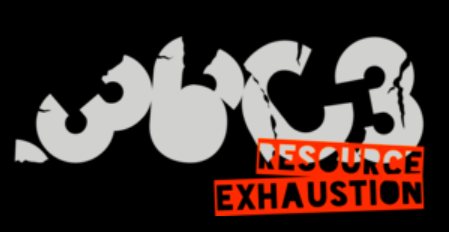
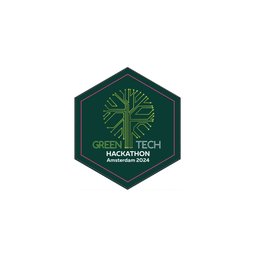
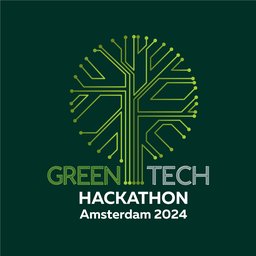
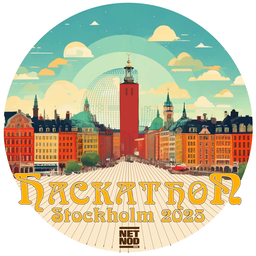
Comments 0
The comments section is closed for articles published more than a year ago. If you'd like to inform us of any issues, please contact us.